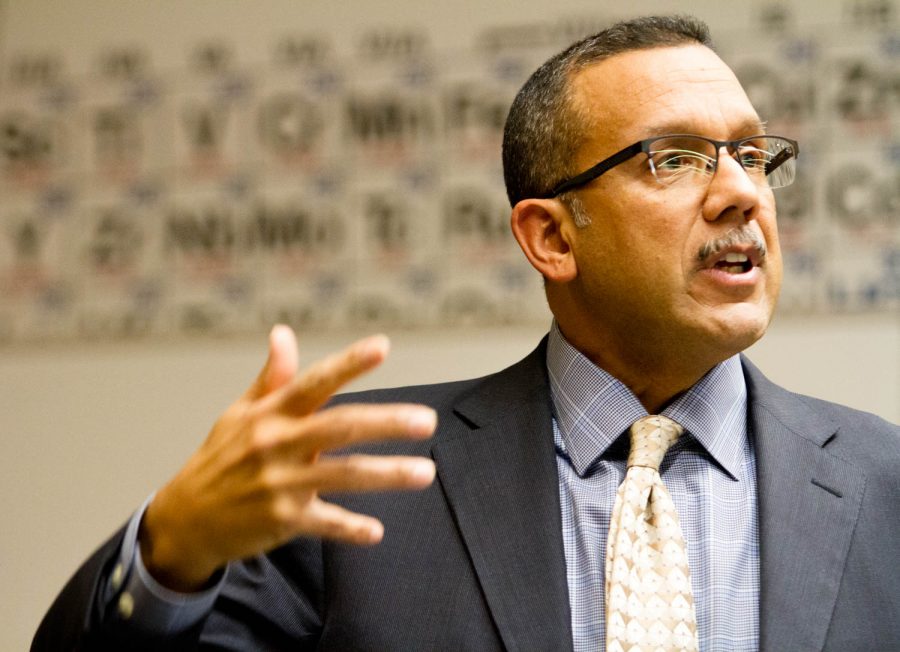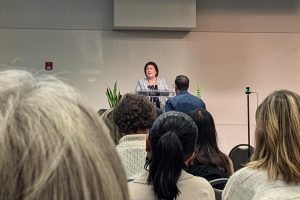Lincoln looks to founders
Lucas Morel highlights Lincoln’s approach to presidency
Professor Morel speaking in Eaton Hall on Nov. 25th on “Lincoln and the Founding.”
November 27, 2019
Dr. Lucas Morel, professor of politics and head of the politics department at Washington and Lee University, spoke of Abraham Lincoln’s conviction to follow the example of the founding fathers of the past, to deal with the problems of his time.
Morel believes that, “what Lincoln said about the founders still has currency for us today.”
On Monday, Nov. 25, the school of Business, Government, and Economics invited Morel to Eaton to speak to Seattle Pacific University students about the United States’ 16th president, Abraham Lincoln and the hardship he encountered during the Civil War.
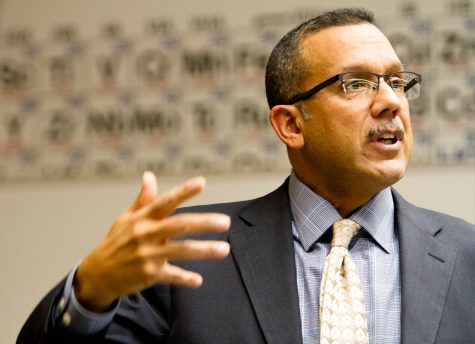
Professor Morel speaking in Eaton Hall on Nov. 25th on “Lincoln and the Founding.”
Morel has published multiple books about famed president and was the former president of the Abraham Lincoln Institute.
Morel examines Lincoln’s perspective on addressing the issue of slavery in the context of 19th century American politics. Lincoln did not believe he had all the answers or that his time was superior to the past. Morel argued that students, too, should have the humility and initiative to seek the wisdom of the founders of America.
Lincoln took the constitution to mean that all men are created equal without exception. In the face of a civil war, he looked to the founders for clarity.
He believed that he could not look forward until he understood the past. Even in pursuing the end goal of abolishing slavery, Lincoln did not want to abuse the power given to him by the people.
Lincoln’s goal, Morel said, was “to turn a humanitarian end to a constitutional means.”
Lincoln was not without contenders, Morel noted. Two main ideologies challenged this interpretation of the constitution.
One was Alexander H. Stephens, vice president of the Confederate States of America, who provided the justification of a racial basis for slavery. He crafted a constitution where white supremacy was the cornerstone.
Morel said that this theory fully professed unabashed practice and justification of slavery.
The other, Steven Douglas, the leading democrat in 1860s, was a proponent for popular sovereignty. Morel short names Douglas as the “do you” candidate, as he advocated the authority of the people. Douglas called himself the candidate of diversity because he left the decision to individual states.
“I’m serious!” Morel said, responding to the looks of shock and partially concealed laughter.
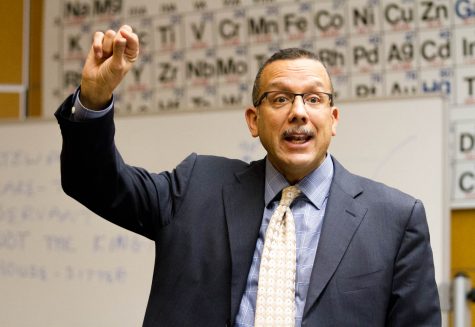
Professor Morel explaining why Americans in the 1860s were fighting for justice.
Morel explained that Douglas was not referring to racial diversity, but diversity of self-governance excluding all congressional interference.
Lincoln, when compared to this accommodating candidate, seemed to be advocating a rigid conformity to national standards rather than allowing the flexibility of local decision-making. Morel calls him “a candidate of uniformity.”
Lincoln believed that to protect the rights of every American citizen, the foundation had to be in human equality.
Morel explained Lincoln’s standpoint that interpretation should not discriminate.
“It should not matter about gender or race. They are arbitrary. They are not relevant to who you are as a human being fundamentally. Remember what we all share as human beings, and use that as the basis of progress,” Morel said.
Morel then introduced abolitionism, the ideology often associated with Lincoln, and claimed that Lincoln would not have considered himself an abolitionist.
Radical abolitionist William Lloyd Garrison thought that “free states were aiding and abetting slavery becuase they were supporting a constitution that had compromised slavery.”
“A Biblical example of this principle,” Morel said, is that “you can’t get good fruit from an evil tree.”
Garrison did not think politics would get rid of slavery, because politics alone could not force someone to make good choices. It had to be a conviction from God.
To demonstrate his point, Garrison publicly burned a copy of the U.S. constitution. Garrison said the constitution was “a covenant with death and an agreement with hell.”
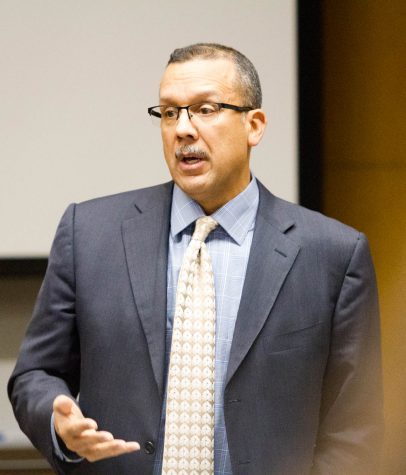
“You just don’t do that!” Morel exclaimed.
Morel said that Lincoln understood that slavery is the grand contradiction of America, but he believed that the means needed to be consistent with the end.
Lincoln wanted America to adopt its best self. He wanted to remind American’s of what they believed.
“Why,” Morel asked, “do you think Lincoln didn’t want to call himself an abolitionist?”
















































































